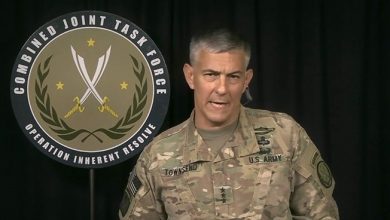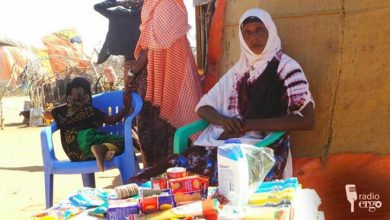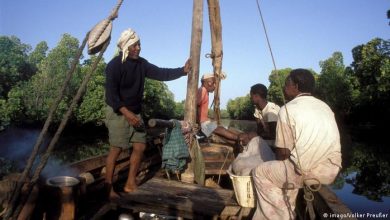In Toronto Centre byelection, can the Liberals keep Bill Morneau’s former seat?
OTTAWA—It’s not the politicians, it’s the promises. It’s hard to believe they’ll ever come true.
OTTAWA—It’s not the politicians, it’s the promises. It’s hard to believe they’ll ever come true.
That’s how Ibrahim Afrah feels. At 34, the community advocate and volunteer in Regent Park has heard his share of commitments from people vying for votes in his part of the city. It’s happening again right now in a federal byelection, one of two set for Monday in different Toronto ridings.
In Toronto Centre, where Afrah has lived since he came to Canada from Somalia in 2001, he said there needs to be more local jobs, a plan to tackle crime and support for the ongoing “revitalization” of Regent Park that has seen expensive condos built amongst the existing community of public housing in recent years.
But sometimes, he told the Star recently, he doubts that “politics will allow” local representatives to follow through with pledges like this on the campaign trail.
“Some challenges remain when it comes to being heard,” Afrah said. “I am pessimistic about the promises they make.”
For a long time, it has been the Liberals making promises in Toronto Centre that have won over the most voters. In fact, when political analysts talk about Liberal “strongholds,” they are referring to ridings like Toronto Centre. The Liberals have held various incarnations of the district since 1993.
The riding is home to more than 100,000 people, as per the 2016 census. It comprises much of the downtown core between Bay Street and the Don Valley, including the Gay Village, the towers of St. Jamestown, Ryerson University, Cabbagetown, Moss Park, Regent Park and more. There are almost 18,000 people per square kilometre, making it the riding with the densest population in Canada.
It’s also diverse, with almost half the population in the latest census identifying as visible minorities, and almost two-in-five residents born outside Canada.
Big names have represented the people there, too. In 2019, then-finance minister Bill Morneau was re-elected with 57 per cent of the vote, a repeat of his dominant result in 2015. Before that, the riding was briefly held by Chrystia Freeland — Morneau’s successor as finance minister — as well as former interim Liberal leaders Bob Rae and Bill Graham.
The seat was vacated by Morneau when he resigned this summer, in the wake of his role in the WE Charity controversy that is still dogging the Liberals in Ottawa. In a bid to replace him, the party recruited Marci Ien, a television personality and journalist who grew up in St. Jamestown, to run under the Liberal banner.
It’s not controversial to say she’s expected to win.
“Even during the NDP wave in 2011, (Toronto Centre) held to the Liberals,” said David Coletto, chief executive officer of the polling firm, Abacus Data.
“It would be an earthquake if they were to lose this race,” he said.
Ien herself isn’t taking anything for granted. You can hear her knocking on wood over the phone when she speaks about her ambition to win the seat and join Prime Minister Justin Trudeau’s Liberal caucus in Ottawa and represent a community she says is “part of my lifeblood.”
That starts with pledging to support the government’s 10-year plan to build more affordable housing in places like Toronto, she told the Star recently.
“I will tell you, housing and homelessness are huge issues in my riding,” Ien — who was endorsed Friday by Raptors President Masai Ujiri — told the Star recently. “What this pandemic has shown us is exactly who is falling through the cracks… and what we have to do to build back better — because we really do,” she said.
Brian Chang is one of the candidates trying to beat her. He is reprising his role as the New Democratic Party contender in Toronto Centre, having lost to Morneau by 35 percentage points in 2019.
Like Ien, Chang said the COVID-19 pandemic is “top of mind” for Toronto Centre residents this time around. He took the unusual step of foregoing all door-to-door canvassing, a typical part of campaigning that Chang said is the NDP’s “bread and butter.” Chang also decided not to open a campaign office to avoid putting volunteers at risk during the second wave of the pandemic in the dense, downtown riding.
For the NDP to win, Chang said he is trying to show voters how his party has helped improve government aid during the pandemic crisis, including by pressing the minority Liberals to expand emergency sickness and jobless benefits.
He also took aim at Ien for being the latest star candidate the Liberals have selected to run in Toronto Centre.
“The real focus is the Liberals who continue to parachute wealthy candidates into this riding,” he said.
Annamie Paul has made similar statements. She is the newly-elected leader of the Green Party of Canada, who is running in Toronto Centre for the second time after placing a distant fourth with seven per cent of the vote in 2019.
Though she doesn’t live in the riding, Paul says she has “deep family roots” in the riding and has argued she can better represent Toronto Centre residents than the Liberals have over the years. She also accuses the Liberals of irresponsibly calling the election when people in the riding — low-income Canadians, precarious workers, and others — have been hit hard during the crisis and are now being asked to participate during the second wave of pandemic.
“I’m running there to give people the option of the representation they deserve and that they haven’t had for a very, very long time under the Liberals,” she told the Star recently.
Curran Stikuts works in community engagement at the 519, a city agency on Church Street that supports health and participation of the area’s LGBTQ2S communities. He said the pandemic has brought a “set of interlocking crises” to the area, highlighting the persistent lack of shelter space and affordable housing, as well as the ongoing struggle with opioid overdoses.
It all combines to form a sense that it’s possible to make a difference by participating in the political process of the byelections, he said. “If we can’t make those positive structural changes in a crisis like this, when will we have the opportunity again?” he said.
For Afrah, the community advocate in Regent Park, he said he hopes that opportunity can translate to real action to benefit people in the riding. He said residents must keep the pressure on to get what they need, even after the votes are counted, and regardless of who wins.
“I do believe that there’s a lot of work left for communities to partake (in), and it’s actually the job of individuals … to stand up,” he said. “Change doesn’t happen only when an election comes. Residents need to realize that it continues every day.”





